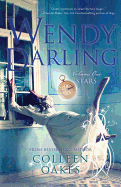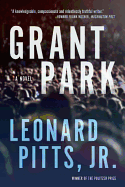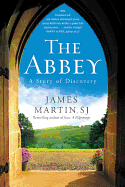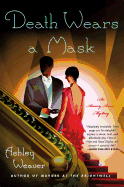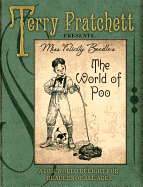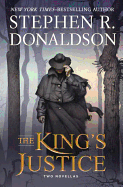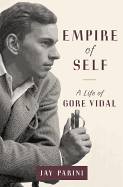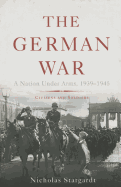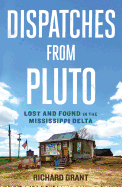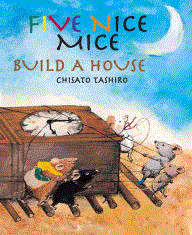 |
| photo: Nina Subin |
|
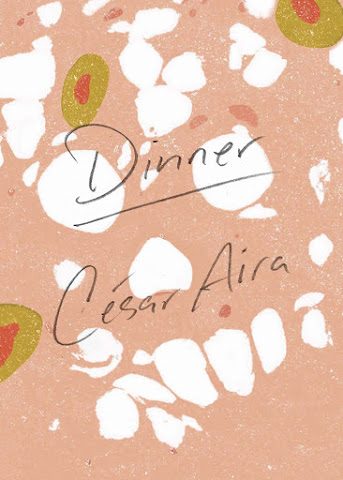 |
The prolific César Aira has already produced some 90 short novels over his career. This Argentinean wunderkind publishes two to four novels annually, a staggering bibliographic hurricane that shows no sign of abating. He sets many of his tales in his strangely named hometown, Colonel Pringles, and gets so entangled in digressions that his stories seldom make it to an expected ending. Aira supposedly never rewrites, never plans plot direction, never corrects contradictions, and relentlessly produces a page a day. The novellas resulting from this are exhilarating, infuriating, exasperating, inspiring and sometimes laugh-out-loud funny.
The most recent addition to the 10 novels in translation available from New Directions is Dinner (translated by Katherine Silver; $13.95). Dinner is as short as the others and just as eccentric and unpredictable. A 60-year-old man is living with his elderly mother. They are invited to a small dinner party by the only friend he has left. Afterward, at home, he turns on the news and sees tele-journalist Maria Rosa roaring onto the screen on her scooter, en route to the town cemetery where the dead have been reported rising from their graves. The plot follows her motorcycle, leaving the narrator behind and abruptly turning into a zombie tale--or is it groggy indigestion blending with a late-night telecast of Night of the Living Dead? Instead of a resolution, the story turns into an odd tale about a brother and sister with the same name--in other words, a frustrating, uniquely Aira-style ending.
His other novels in English, published by New Directions, in chronological order:
Ghosts (translated by Chris Andrews) is one of Aira's best. It unfolds in Buenos Aires on New Year's Eve in the half-finished skeleton of an apartment building, where a Chilean night watchman's family is celebrating with future tenants, architects and designers. The naked ghosts of dead builders haunt the premises, laughing uproariously at the living and tempting lonely Patri, the night watchman's teenage daughter, to die so she can join the ghost party.
How I Became a Nun (translated by Chris Andrews) is probably Aira's best known work, the shocking story of an ambiguously gendered child and a brutal father determined to make his son eat his first ice cream cone, not knowing the ice cream has been contaminated with cyanide. After driving his son into sobbing hysterics, the father tastes it and goes into such a rage that he murders the vendor by pushing him face down into the ice cream vat. And that's just Chapter One. The boy ends up in the hospital, the father in prison for eight years for homicide. The ending is just as startling, especially since no one becomes a nun.
The Seamstress and the Wind (translated by Rosalie Knecht) has a compelling, urban fairytale first half, in which a mother sets out in pursuit of her neighbor's truck on a nonstop haul to Patagonia, convinced her eight-year-old son is trapped inside the trailer. The frantic chase turns goofy and preposterous long before the ending.
 Aira's masterpiece is An Episode in the Life of a Landscape Painter (translated by Chris Andrews), a historical novel about a real German artist, Johann Moritz Rugendas, a documentary painter in the time before photography. The novella is an account of Rugendas's truncated five-month trip to Argentina in 1837 at age 35, when this timid genius's plans are cut short by a nightmarishly unexpected "episode." Rugendas is hit by lightning, then dragged by a maddened horse until he's horribly disfigured, with amazing consequences. The novel's superb ending is sheer literary audacity.
Aira's masterpiece is An Episode in the Life of a Landscape Painter (translated by Chris Andrews), a historical novel about a real German artist, Johann Moritz Rugendas, a documentary painter in the time before photography. The novella is an account of Rugendas's truncated five-month trip to Argentina in 1837 at age 35, when this timid genius's plans are cut short by a nightmarishly unexpected "episode." Rugendas is hit by lightning, then dragged by a maddened horse until he's horribly disfigured, with amazing consequences. The novel's superb ending is sheer literary audacity.
The Hare (translated by Nick Caistor) is Aira's longest novel, with his most sprawling plot--a multi-stranded tale about a British expedition to a remote Mapuche Indian tribe led by Clarke, a young naturalist and brother-in-law of Darwin. It's populated by artists and outlaws, gun-wielding bandit wives and colorful natives, making much droll comedy of the many ways Indians can be verbally misleading. The disappearance of the 70-year-old Mapuche chieftain and the elusive flying hare of the title lead to plenty of blazing guns and flying arrows, but not much more.
The beginning of The Literary Conference (translated by Katherine Silver) is intriguing, about the Macuto Line in Venezuela, a rope stretched three yards above the surface of the water by pirates to hide a secret treasure in the sea. Unfortunately, it's just an unexplained device to make the narrator suddenly rich before he proceeds on his way to the literary conference, where a mad scientist is attempting world domination by cloning a cell of Carlos Fuentes, and the author spends most of his time at the hotel swimming pool.
In The Miracle Cures of Dr. Aira (translated by Katherine Silver), the doctor claims to have miraculous healing powers; he's pursued by the villainous Dr. Actyn, who's trying to discover his healing techniques. The comic-book characters and labyrinthine plotting have nowhere to go, resulting in a lot of literary running-in-place.
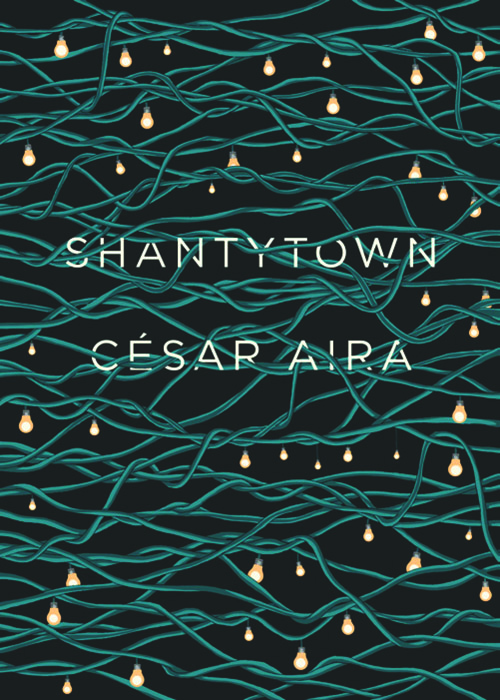 Shantytown (translated by Chris Andrews) is one of Aira's very best, a literary labyrinth just like the slums outside the Buenos Aires it describes, where the convoluted streets are identified by their light bulb arrangements. Maxi, a handsome, wealthy, weight-lifting 20-year-old, volunteers daily to help the local scavengers carry off their findings. Corrupt Inspector Ignacio Cabezas of Police Station 38 is stalking Maxi's sister because she's mixed up with several neighborhood dealers of proxidine, a drug that increases the proximity of things. The complicated plot generates genuine suspense over the fates of its likable characters, and a dilemma is resolved by a single, brilliant stroke.
Shantytown (translated by Chris Andrews) is one of Aira's very best, a literary labyrinth just like the slums outside the Buenos Aires it describes, where the convoluted streets are identified by their light bulb arrangements. Maxi, a handsome, wealthy, weight-lifting 20-year-old, volunteers daily to help the local scavengers carry off their findings. Corrupt Inspector Ignacio Cabezas of Police Station 38 is stalking Maxi's sister because she's mixed up with several neighborhood dealers of proxidine, a drug that increases the proximity of things. The complicated plot generates genuine suspense over the fates of its likable characters, and a dilemma is resolved by a single, brilliant stroke.
Varamo (translated by Chris Andrews) has one of Aira's most delightful premises: a 50-year-old third-class clerk picks up his paycheck--which he doesn't realize has been paid in counterfeit money--leaves his job and within the next 12 hours conceives, writes and completes a long, now-classic poem, "The Song of the Virgin Child"--then never writes another line of poetry in his life. Enough for a rich and complex novel, and that's only the first page. Unfortunately there are no stakes, nothing to care about, and the rest of the plot is forgettable.
 Unable to sleep at night, the narrator of The Conversations (translated by Katherine Silver) entertains himself by remembering the day's conversations. One afternoon he and a friend discuss a movie blooper in which an illiterate goatherd in the Ukraine is glimpsed wearing a Rolex watch. Neither one saw the entire film. Each missed different portions of the story. The fury and complexity of the resulting conversation about the goatherd spins out of control until the CIA and the star's private life (even his dog, Bob) are thoroughly implicated in the discussion.
Unable to sleep at night, the narrator of The Conversations (translated by Katherine Silver) entertains himself by remembering the day's conversations. One afternoon he and a friend discuss a movie blooper in which an illiterate goatherd in the Ukraine is glimpsed wearing a Rolex watch. Neither one saw the entire film. Each missed different portions of the story. The fury and complexity of the resulting conversation about the goatherd spins out of control until the CIA and the star's private life (even his dog, Bob) are thoroughly implicated in the discussion.
Aira is light, witty, thoughtful, inventive and very uneven. Some Aira works border on genius. But many are throwaway fluff padded out with philosophical nonsense. His playfulness veers between self-indulgence and a creative friskiness than defies the reader not to smile. These improvisational narrative doodles are frequently little more than cartoons, but they're as addicting as high quality popcorn, the literary equivalent of superb junk food that's almost nutritious and much too tasty to resist. --Nick DiMartino, Nick's Picks, University Book Store, Seattle, Wash
The 90 Novels of César Aira
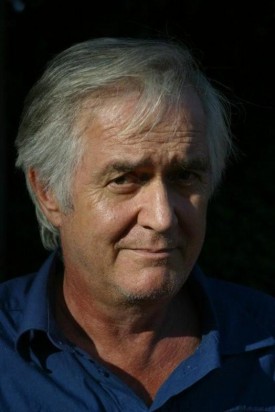





 Aira's masterpiece is An Episode in the Life of a Landscape Painter (translated by Chris Andrews), a historical novel about a real German artist, Johann Moritz Rugendas, a documentary painter in the time before photography. The novella is an account of Rugendas's truncated five-month trip to Argentina in 1837 at age 35, when this timid genius's plans are cut short by a nightmarishly unexpected "episode." Rugendas is hit by lightning, then dragged by a maddened horse until he's horribly disfigured, with amazing consequences. The novel's superb ending is sheer literary audacity.
Aira's masterpiece is An Episode in the Life of a Landscape Painter (translated by Chris Andrews), a historical novel about a real German artist, Johann Moritz Rugendas, a documentary painter in the time before photography. The novella is an account of Rugendas's truncated five-month trip to Argentina in 1837 at age 35, when this timid genius's plans are cut short by a nightmarishly unexpected "episode." Rugendas is hit by lightning, then dragged by a maddened horse until he's horribly disfigured, with amazing consequences. The novel's superb ending is sheer literary audacity. Shantytown (translated by Chris Andrews) is one of Aira's very best, a literary labyrinth just like the slums outside the Buenos Aires it describes, where the convoluted streets are identified by their light bulb arrangements. Maxi, a handsome, wealthy, weight-lifting 20-year-old, volunteers daily to help the local scavengers carry off their findings. Corrupt Inspector Ignacio Cabezas of Police Station 38 is stalking Maxi's sister because she's mixed up with several neighborhood dealers of proxidine, a drug that increases the proximity of things. The complicated plot generates genuine suspense over the fates of its likable characters, and a dilemma is resolved by a single, brilliant stroke.
Shantytown (translated by Chris Andrews) is one of Aira's very best, a literary labyrinth just like the slums outside the Buenos Aires it describes, where the convoluted streets are identified by their light bulb arrangements. Maxi, a handsome, wealthy, weight-lifting 20-year-old, volunteers daily to help the local scavengers carry off their findings. Corrupt Inspector Ignacio Cabezas of Police Station 38 is stalking Maxi's sister because she's mixed up with several neighborhood dealers of proxidine, a drug that increases the proximity of things. The complicated plot generates genuine suspense over the fates of its likable characters, and a dilemma is resolved by a single, brilliant stroke. Unable to sleep at night, the narrator of The Conversations (translated by Katherine Silver) entertains himself by remembering the day's conversations. One afternoon he and a friend discuss a movie blooper in which an illiterate goatherd in the Ukraine is glimpsed wearing a Rolex watch. Neither one saw the entire film. Each missed different portions of the story. The fury and complexity of the resulting conversation about the goatherd spins out of control until the CIA and the star's private life (even his dog, Bob) are thoroughly implicated in the discussion.
Unable to sleep at night, the narrator of The Conversations (translated by Katherine Silver) entertains himself by remembering the day's conversations. One afternoon he and a friend discuss a movie blooper in which an illiterate goatherd in the Ukraine is glimpsed wearing a Rolex watch. Neither one saw the entire film. Each missed different portions of the story. The fury and complexity of the resulting conversation about the goatherd spins out of control until the CIA and the star's private life (even his dog, Bob) are thoroughly implicated in the discussion.